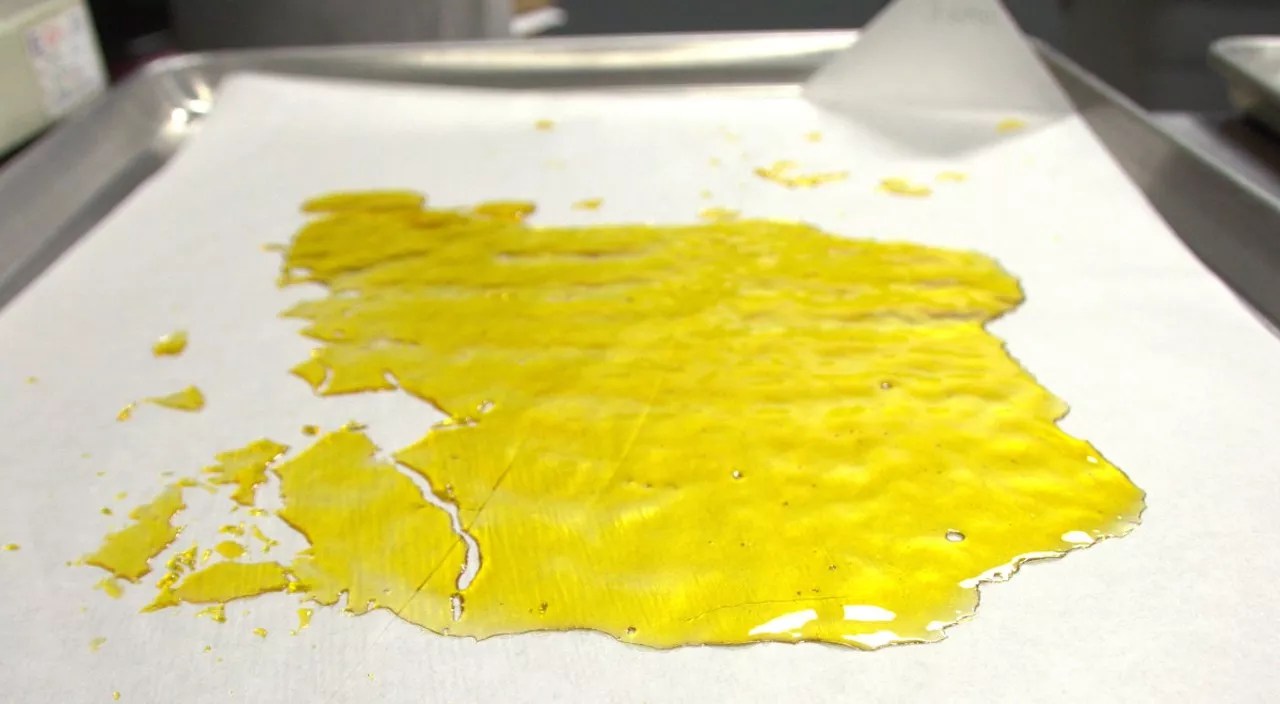
Lindsey Bartlett

Audio By Carbonatix
A powerful faction of Colorado’s cannabis industry is pushing for more tolerant testing requirements for marijuana concentrates, but first they’ll have to persuade state health and pot regulators to ease up.
During a state Marijuana Enforcement Division rulemaking hearing on August 18, representatives of marijuana extraction companies, trade organizations and even a testing laboratory told MED and Colorado Department of Public Health and Environment officials that proposed pesticide testing levels for marijuana concentrates, such as wax, THC oil vaporizer products, bubble hash and live resin, don’t need to be so strict.
Marijuana plant material is tested for banned pesticides by state-certified testing labs, but concentrates don’t yet receive the same treatment. The MED’s suggested limit for banned marijuana pesticides in concentrates ranges from 0.01 to 0.07 parts per million, depending on the flagged chemical, with failed batches set aside for retesting, remediation or destruction.
But according to Alena Rodriguez, marijuana testing director at RM3 Labs, the proposed standards are too high and based on levels that much of the pot industry considers arbitrary. During the hearing, Rodriguez explained that Colorado’s planned requirements would be unduly harsh compared to those of other states with legal marijuana, and suggested that pesticide testing levels for concentrates should instead be based on the pesticide’s health risk.
She also noted that some of the pesticides approved for marijuana by the state Department of Agriculture may contain banned chemicals that aren’t labeled. “Just because the label doesn’t say it’s there doesn’t mean it isn’t,” Rodriguez said. “They make that list by just reading the manufacturer’s label, and unfortunately, the manufacturers don’t always list their ingredients in the label.”
Representatives from Wana Brands, a large infused-product maker, as well as edibles maker NFuzed Gummies and the Colorado Cannabis Manufacturers Association, a marijuana extraction trade organization, echoed Rodriguez’s sentiments. The CCMA specifically questioned the ability of state-certified marijuana labs to accurately measure pesticide residue in concentrates.
“Ultimately, we want to make sure the instrumentation the labs are using can detect whether the banned pesticides are being used, and we want to prevent any false-positive issues,” CCMA director Kevin Gallagher said. “We’re not advocating for much higher pesticide action limits. At the end of the day, these pesticides are [still] banned. We just want to make sure the actions make sense in terms of instrument reliability.”
CDPHE and MED officials defended the current pesticide testing levels, however, arguing that because pesticides, like THC, are more concentrated in marijuana extracts than in flower and therefore more toxic, the strict rules are necessary – and far from impossible to follow.
“Based upon the data provided to CDPHE and MED, we believe these limits are fully achievable,” said CDPHE marijuana laboratory sciences manager Heather Krug, who added that there is “essentially no data available” about the health hazards of burning and inhaling banned marijuana pesticides.
“We would very much like to look at that data on health-based limits when it becomes available. But right now, we don’t have that data,” she explained.
According to MED testing and research analyst Brandon Jeffery, all state-certified marijuana testing facilities must “show and prove through analytical methods” that they are capable of accurately and precisely finding the pesticides for which they’re becoming certified to test. “If testing facilities weren’t able to do that, the MED would likely consider a delay in the implementation of this requirement,” he said.
The implementation dates of the proposed testing requirement have not yet been determined, and the MED will continue to hold rulemaking hearings on product testing and dozens of other future marijuana-industry rules through the summer and fall.